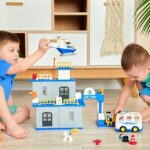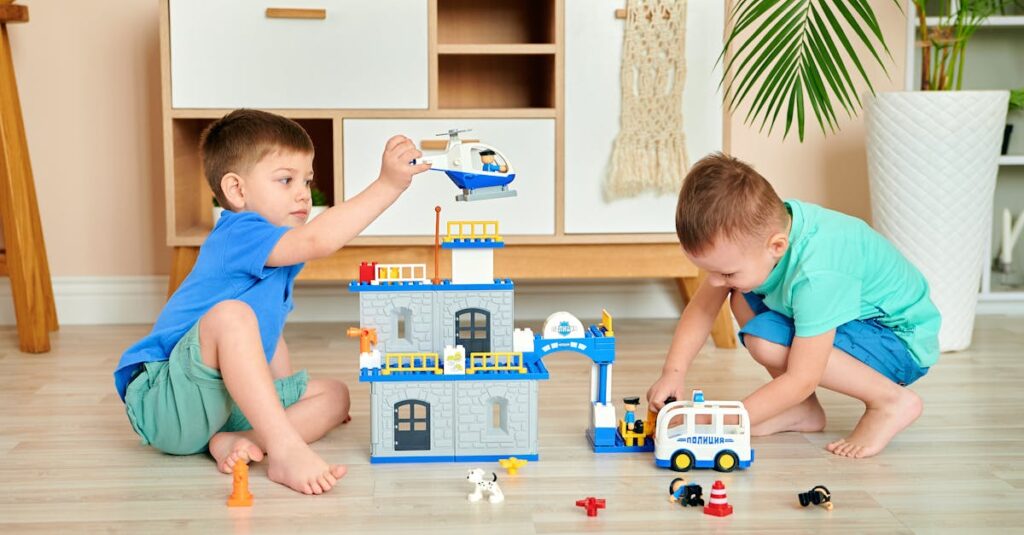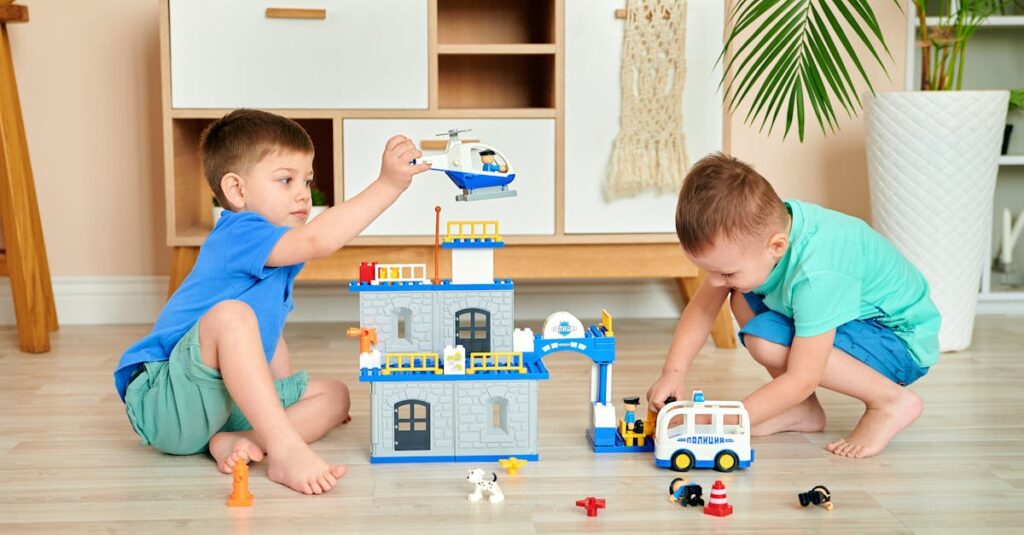In a world where parents hover like helicopters over their children, the question arises: what’s the long-term impact of this all-seeing, all-knowing approach? While it might seem like a loving gesture, helicopter parenting can turn into an unexpected turbulence for kids. Instead of soaring through life’s challenges, they could end up stuck in a holding pattern, unsure how to navigate on their own.
Table of Contents
ToggleOverview of Helicopter Parenting
Helicopter parenting involves a high level of control and involvement in a child’s life. Parents often monitor every aspect of their children’s activities, making decisions on their behalf. This approach tends to stem from a desire to protect children from failure or disappointment.
Characteristics of helicopter parenting include constant supervision and a lack of opportunities for children to make independent choices. Parents may intervene in academic settings, friendships, and extracurricular activities. This can lead to children becoming reliant on their parents for guidance and approval.
Another impact of helicopter parenting is the potential hindrance of critical life skills. Children may struggle with time management, problem-solving, and resilience due to overprotection. Research indicates that such excessive involvement can result in higher anxiety levels and decreased self-esteem among children.
Interventions designed to foster independence can help counteract the effects of helicopter parenting. Allowing children to face challenges can promote resilience and self-confidence. Studies suggest that children given the space to navigate difficulties tend to emerge more competent and self-reliant.
Helicopter parenting may stem from good intentions but can adversely affect a child’s development. Balancing support while encouraging independence is crucial for healthy emotional and social growth.
Definition of Helicopter Parenting
Helicopter parenting refers to a style of parenting where parents closely oversee and control all aspects of their children’s lives. This approach often stems from a desire to protect children from failure or disappointment. As a result, it may hinder their ability to develop independence and resilience.
Characteristics of Helicopter Parenting
Over-involvement marks helicopter parenting. Parents monitor their children’s activities constantly. Additionally, they intervene in decision-making processes frequently. Parents often prioritize their children’s academic success, leading to heightened pressure. A lack of opportunities for independent choice becomes apparent, resulting in reliance on parents for guidance. Moreover, parents may exhibit excessive worry about their children’s well-being, further reinforcing dependence. Such behaviors diminish children’s chances to face challenges on their own.
Common Practices in Helicopter Parenting
Constant communication characterizes common practices. Parents often flood children with messages about schedules and concerns. They arrange playdates and extracurricular activities without considering children’s preferences. Additionally, parents frequently advocate on behalf of their children in school settings. Overprotective nature emerges through monitoring friendships and social interactions. Intervention in conflicts with peers may frequently occur. Such practices prevent children from learning valuable conflict resolution skills. Overall, these behaviors prioritize parental control over children’s growth and independence.
Long-Term Effects on Children
Helicopter parenting can create significant long-term effects on children’s development in various areas, including emotional well-being, academic performance, and social skills.
Emotional Well-Being
Children raised in overly controlled environments often face heightened anxiety. They struggle with self-doubt and may feel inadequate when facing challenges. Emotional resilience can be compromised as these children may not learn to cope with failure. Increased feelings of worthlessness or depression often stem from this lack of independence. It’s essential for children to encounter difficulties to build their confidence and emotional strength. Those not exposed to manageable failures may develop a fear of trying new things. Emotional intelligence may also suffer as parents intervene without allowing children to process their own feelings.
Academic Performance
Overly involved parents often overly emphasize academic success, leading to performance pressure. These children might rely heavily on parental guidance for homework and projects. A lack of autonomy can stifle critical thinking and problem-solving skills. While some may achieve good grades, internal motivation often remains low. Without opportunities for independent learning, children may lack essential study skills. High expectations can lead to burnout, impacting long-term academic engagement. They might not see education as a source of personal growth but rather as a battleground for approval.
Social Skills Development
Social skills may lag for children of helicopter parents due to constant parental intervention. These children often miss out on essential experiences that foster communication and conflict resolution abilities. Struggles with peer relationships become apparent when they cannot navigate social situations independently. Fear of disapproval may hinder their ability to trust their judgment. Developing strong friendships remains challenging as emotional dependency on parents replaces peer collaboration. Lacking negotiation skills may result in difficulty adapting to different social environments later in life.
Case Studies and Research Findings
Numerous studies and personal testimonials illustrate the long-term effects of helicopter parenting on children. Understanding these impacts provides valuable insights into the challenges faced by individuals raised in highly controlled environments.
Key Studies on Long-Term Effects
Research consistently indicates that children of helicopter parents often struggle with anxiety and self-esteem issues. A study from the American Psychological Association found that these children experience heightened levels of anxiety, significantly affecting their emotional well-being. Findings from the Journal of Child Development revealed that reliance on parental support in academic settings can stifle critical thinking and problem-solving skills. Another study conducted by the University of Michigan linked helicopter parenting to difficulties in social interactions, highlighting a lack of necessary communication and conflict resolution skills in young adults. Overall, these studies underline a concerning trend where well-intentioned parenting methods could hinder children’s abilities to navigate life’s challenges.
Testimonials from Affected Individuals
Affected individuals frequently share personal experiences that reflect the impact of helicopter parenting. One young adult recounted feelings of overwhelming anxiety when faced with situations requiring independent decision-making, attributing it to parental oversight. Another individual noted struggles with self-assertion in social situations, often seeking parental approval before taking action. Many express a deep-rooted reliance on parents for guidance, indicating difficulties in establishing friendships or navigating conflicts. These firsthand accounts reveal a shared narrative where children raised in such environments face substantial challenges in developing autonomy and resilience, highlighting the importance of fostering independence during childhood.
Helicopter parenting, despite its good intentions, can lead to significant long-term challenges for children. The emotional dependence developed under constant supervision can hinder their ability to face life’s obstacles independently. As they transition into adulthood, these individuals may grapple with anxiety and self-doubt, impacting their emotional well-being and social interactions.
Fostering independence is crucial for healthy development. Encouraging children to make their own choices and learn from failures can build resilience and confidence. Striking a balance between support and autonomy is essential for nurturing well-rounded individuals capable of navigating life’s complexities.













